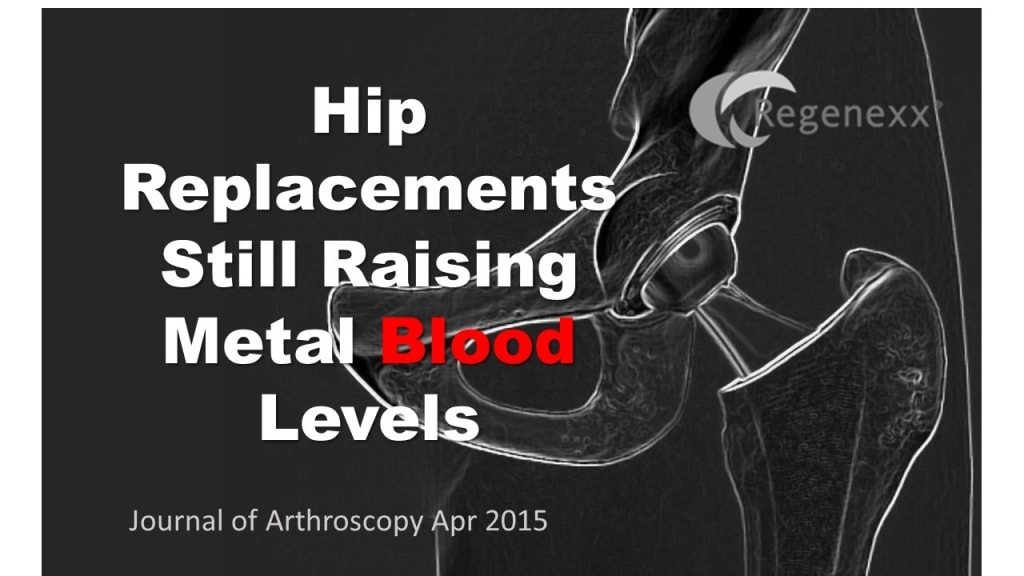Pretty Much All Hip Implants Raise Metal Blood Levels…
The news just never seems to get better for problems with hip replacements. There has been considerable concern of late about the fact that hip implants raise metal blood levels. In the meantime the Orthopedic device industry has scrambled to address that situation, however, each new device iteration seems to come with its own issues. Now, new research indicates that even the newer hip implants raise metal blood levels.
In 2012 , Stryker, the major manufacturer of the Titanium Modular Neck system devices was forced to put out a major recall, not only for increased blood metal ions, but because shards of metal had also been found in patients with these devices. Styker is facing many lawsuits from patients who have experienced everything from ongoing tissue inflammation at the site of the device, to early device failure, to bone death. Importantly, Stryker is only one of several hip replacement device manufacturers who have faced major device recalls in the last several years.
A new study set out to evaluate the blood serum levels of Chromium, Cobalt, and Titanium within the first 2 years following hip replacement with the Titanium Modular Neck system total hip replacement device. To do this 25 patients randomly received a metal on metal device (MoM) which is the type with the known metal wear issue, and 25 patients received a Titanium modular neck system which is a metal on polyethylene device with a Titanium shell (MoP), the new type intended to reduce wear particles. The results were concerning. The MoM and MoP devices caused similar increases in Titanium, Cobalt and Chromium by the end of the first year. However, the MoM device had slightly lower levels of Titanium by the end of the second year. So, the device designed to replace the original Metal on Metal hip replacement implant raised metal blood levels more than what it was supposed to replace!
The upshot? By trying to fix the problem of wear particles and increases in toxic metal ions in the blood of hip replacement patients engineers seem to have made it worse! The bottom line is there is no safe hip replacement option right now, which should concern anyone considering having this invasive surgery.

If you have questions or comments about this blog post, please email us at [email protected]
NOTE: This blog post provides general information to help the reader better understand regenerative medicine, musculoskeletal health, and related subjects. All content provided in this blog, website, or any linked materials, including text, graphics, images, patient profiles, outcomes, and information, are not intended and should not be considered or used as a substitute for medical advice, diagnosis, or treatment. Please always consult with a professional and certified healthcare provider to discuss if a treatment is right for you.

